- June 30, 2021
- By Sala Levin ’10
Two years ago, a teenage wrestler in New Jersey was the subject of national headlines when a referee at a match gave him two options: cut his dreadlocks or forfeit. The video of a trainer chopping off his hair went viral.
Black hair has long been tied to politics, culture, identity and beauty. But as the U.S. takes a longer look at its mistreatment of Black people over history, the kind of behavior demonstrated by the referee and trainer is now becoming illegal under the CROWN Act, which stands for “Creating a Respectful and Open World for Natural Hair.”
A national movement led by a coalition founded by Dove, the National Urban League, Color of Change and the Western Center on Law and Poverty, it expands race-based anti-discrimination law to protect hair texture and hair styles, particularly in the workplace and schools. Last year, Maryland passed the bill, as have jurisdictions in 12 other states. All celebrate CROWN Day on July 3.
To mark the new holiday, Maryland Today asked UMD students, staff and faculty to share with us their own journeys with natural hair—from the liberating to the nerve-wracking to the joyful.
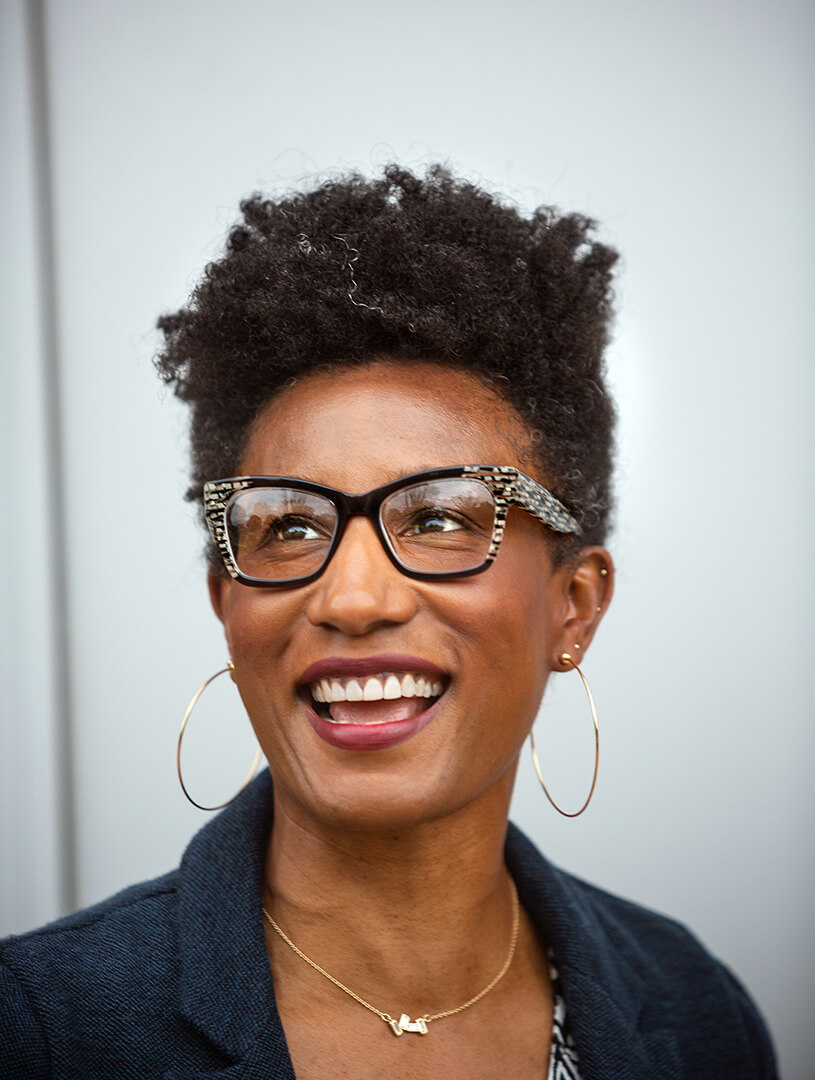 Kimberly Griffin
Kimberly Griffin
Professor and associate dean of graduate studies and faculty affairs, College of Education
“My 2-year-old son has a big head of curly hair. I want him to love his hair the way it grows out of his head, to know that it looks like Mommy’s hair, and to know that it doesn’t have to look any kind of way for him to be acceptable and lovable. He’s still young and cute, so people say he has ‘cool hair’ a lot right now. But I want him to know in the future he doesn’t have to conform to any standard of what he’s expected to look like.”
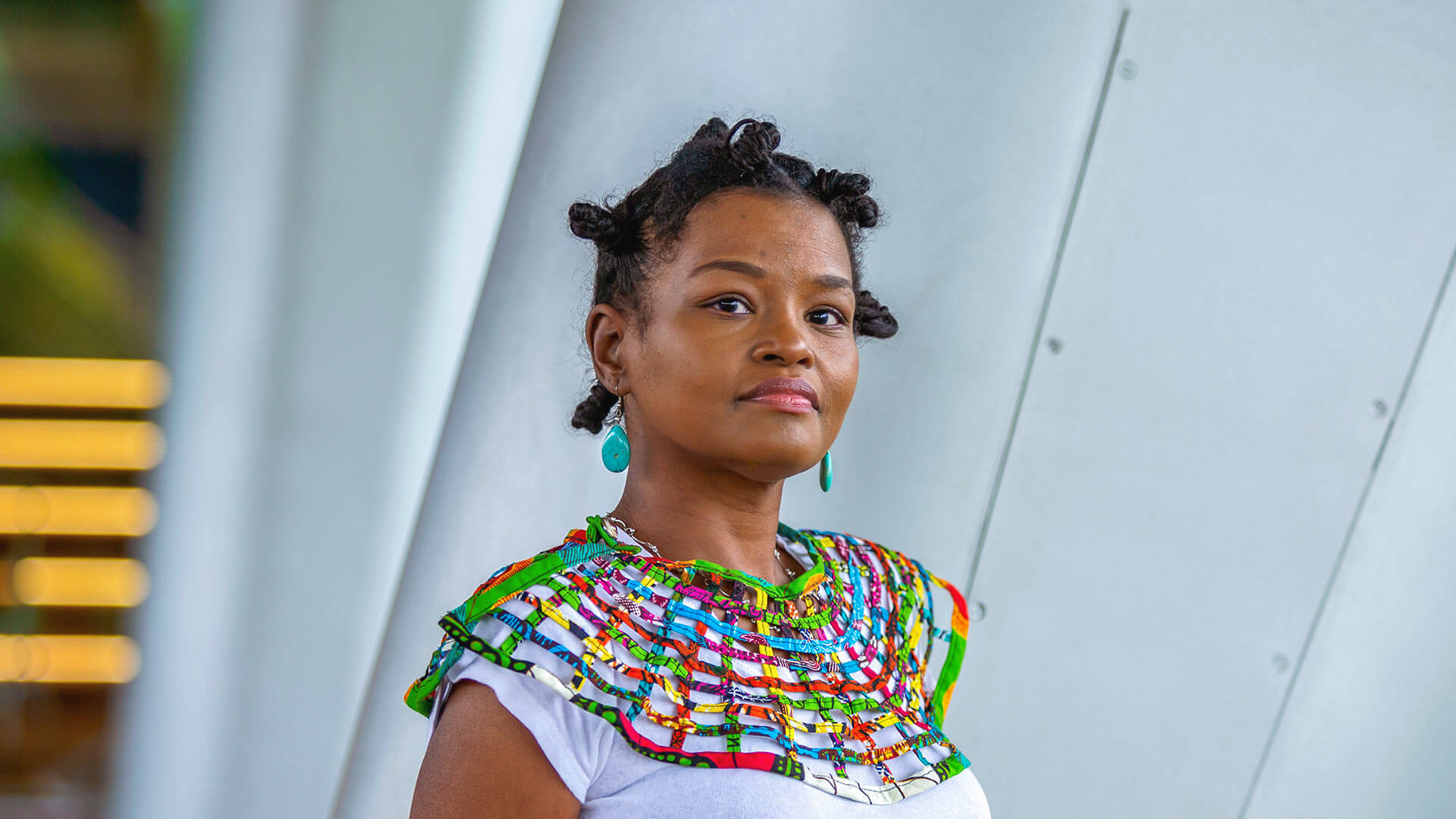 Aisha Washington
Aisha Washington
Program coordinator, Executive Programs, School of Public Policy
“When I was in college, I started taking African studies classes to continue to learn about Black history and myself. Part of this education included an awakening surrounding natural hair and its beauty. After realizing my relaxed hair was a representation of a Eurocentric view of myself, I decided to cut all my hair off and go natural. It was scary, but quite liberating! Going natural is a journey, and in that process you learn so much about yourself and how and why your hair is so unique. In the past, the representation of beauty had only been long, straight, blonde hair. However, now, there is a push to appreciate the beauty in all types of hair, textures and colors, which can now be seen in commercials and advertisements. It has been quite encouraging to see yourself on TV and in print ads, as it demonstrates a societal shift that is recognizing African American beauty as the norm and not the exception to the old Eurocentric standard of beauty. There is a different appreciation now. It's funny: Now that our hair is being highlighted and folks see the creativity and versatility that comes with having Black hair, a lot of people try to emulate our styles. People actually want to have natural hair like ours.
“One day, when the CROWN Act is enacted in all states, I can truly sing the song, 'I Am Not My Hair' by India Arie, and have no worries or fears of being treated differently because I choose to wear my hair the way it truly grows from my head.”
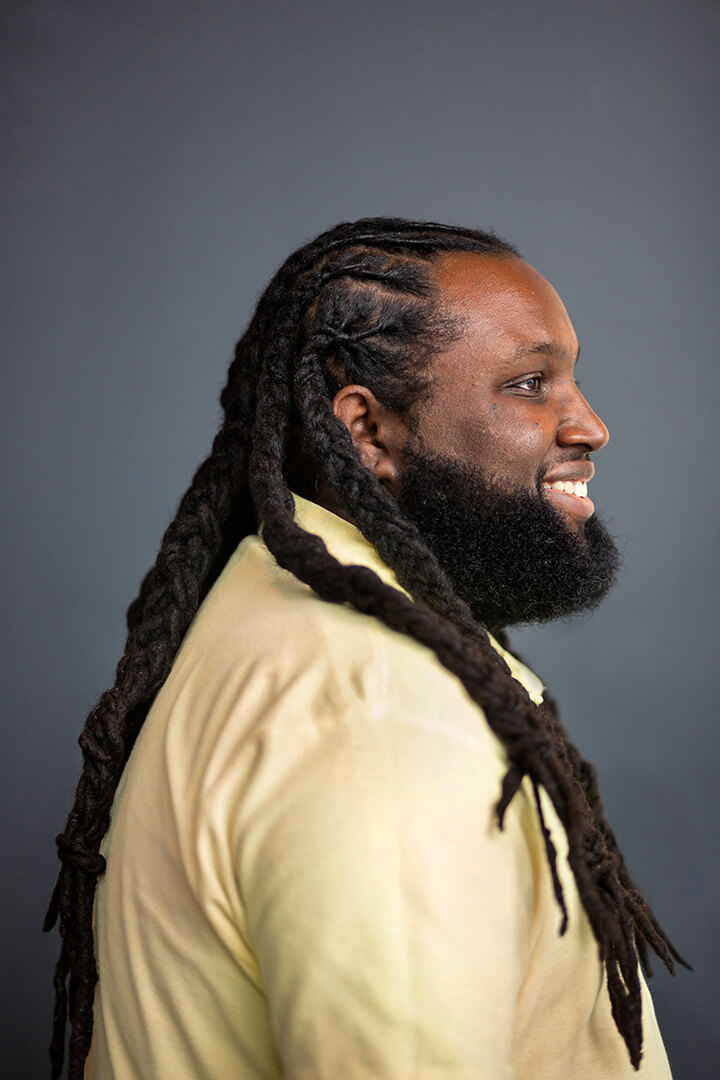 Jason Allen
Jason Allen
IT support coordinator, Robert H. Smith School of Business
“My wife is from the Caribbean, and locs are part of her culture, so I adopted that and I’ve been wearing it ever since. I love it. It’s part of who I am. Around the time I met my wife, I did some studying on my hair texture and type, what’s healthy for it, how to maintain it and take care of it. Locs is what I’ve settled on. I’ve never been happier.”
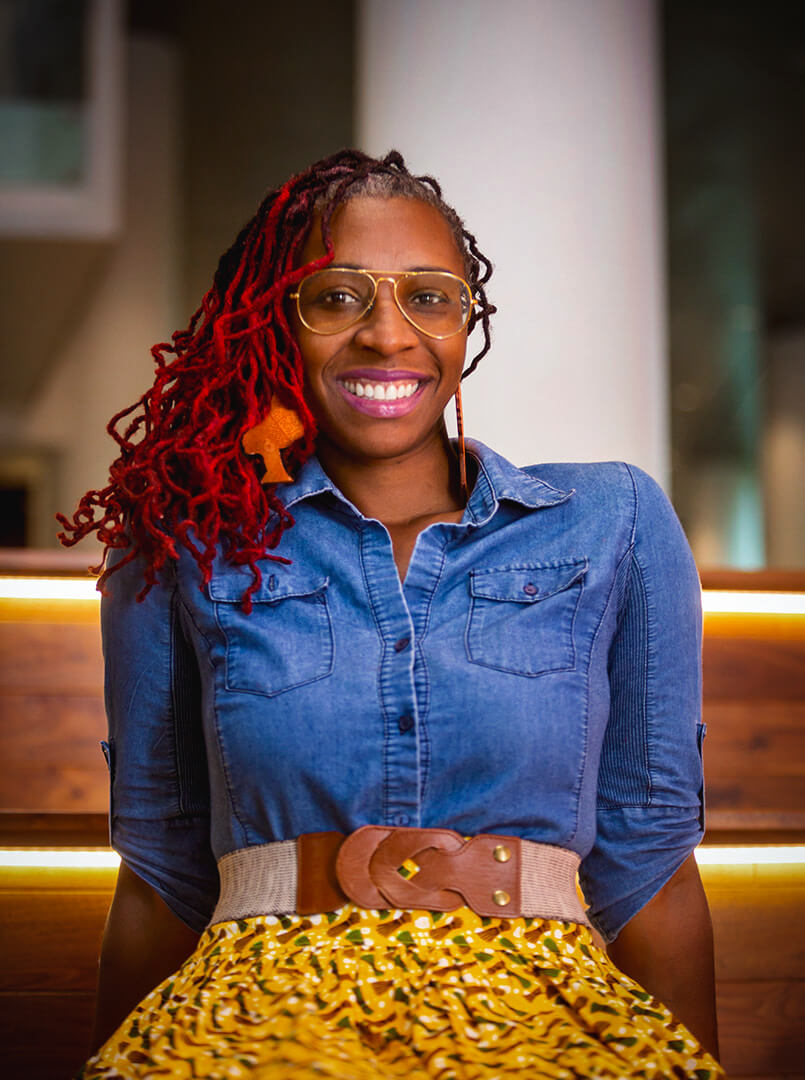 Nia Imani Fields
Nia Imani Fields
Assistant director, UMD Extension; state 4-H leader
“I went to Morgan State University, an HBCU. I was in the business school there, and I recall there being some protest among students because (the school was) discouraging certain hairstyles and certain forms of attire. That’s a layered type of situation, because in reality they were preparing us for what we were going to be facing in the world. What we (students) really should have been doing was pushing back on race-based discrimination in our workplace so that our hair was not something that would make or break opportunities for positions.”
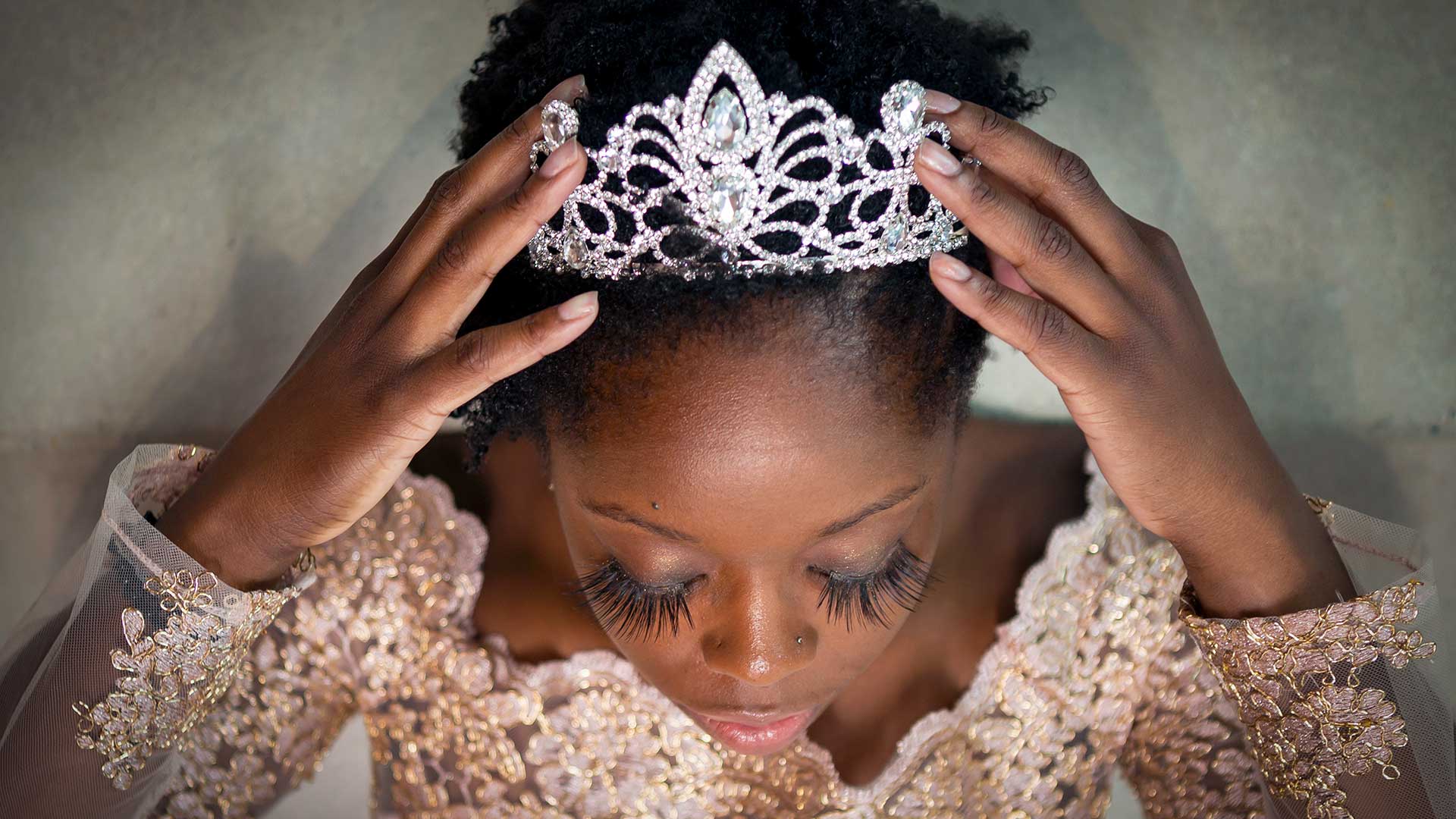 Jehnae Linkins
Jehnae Linkins
Ph.D. student, mechanical engineering
“I fully embrace my natural hair. You twist up your hair at night and hopefully the twist out comes out popping in the morning. Even if it doesn’t, whatever she (my hair) wants to do, I’ll just go with it. I feel like this is the real me. If someone doesn’t like it, I really don’t care. My hair could look super kinky and super curly, but that doesn’t define what kind of engineer I am. It’s just a thing.”
Linkins, who competes in pageants, is pictured here with one of her crowns.
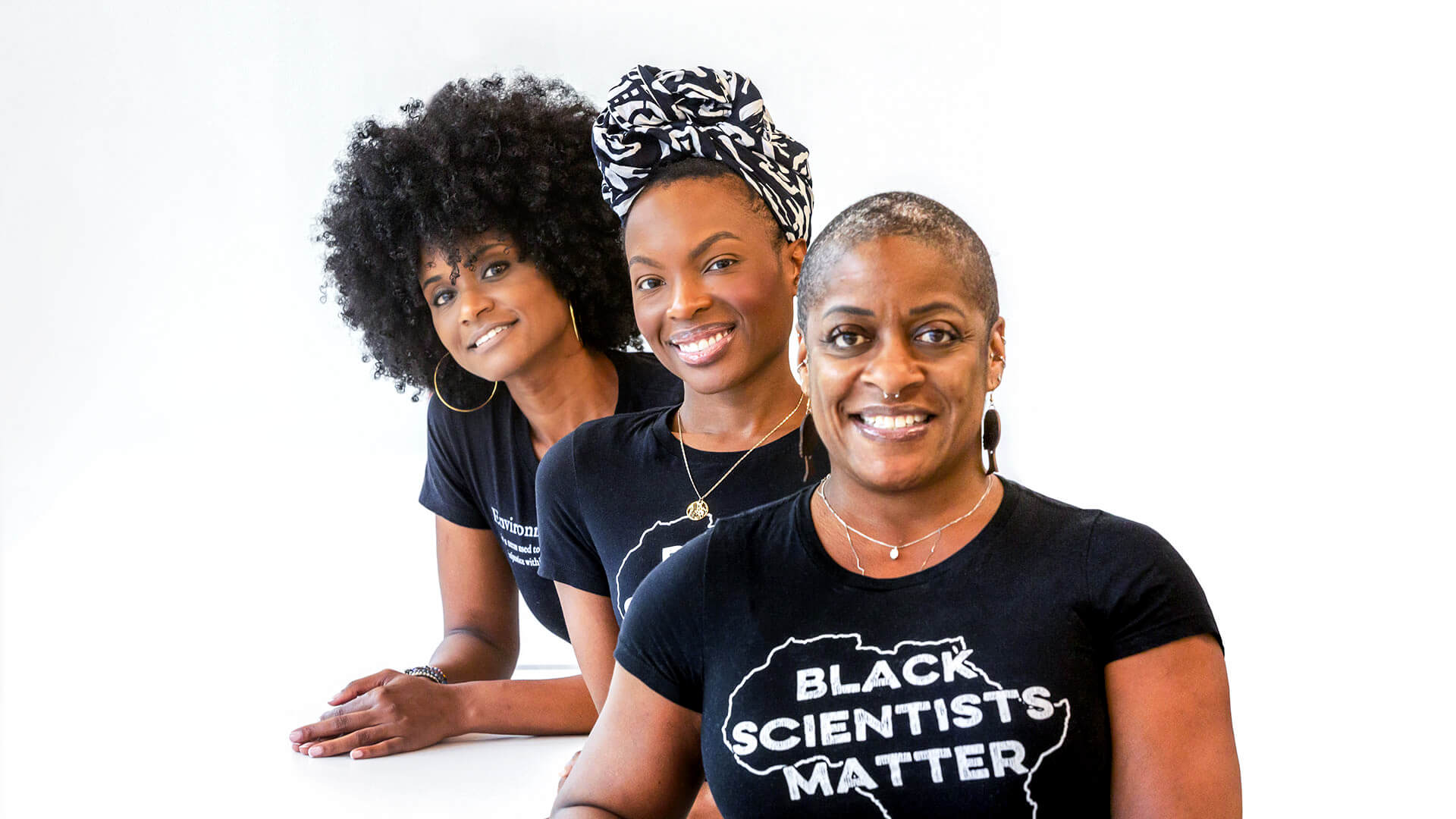 Jennifer D. Roberts (above, left)
Jennifer D. Roberts (above, left)
Assistant professor, kinesiology
“When I grew up, if you were a little Black girl going up to the checkout line eyeing the candy and bubble gum, all you saw were white faces on these magazines. If you did see somebody who looked like you, maybe Jayne Kennedy or Beverly Johnson, you still looked at them like, ‘Ooh, that's what I need to aspire to. My hair needs to be straight. My nose needs to be narrow. My skin needs to be lighter.’ These are very white-centric kinds of features that some little Black girls think they need to be accepted and beautiful. So it still goes back to that inner self-hatred and the reality that, ‘The hair that comes out my head is coily and not straight, my skin is cocoa and not white.’ You have to start being really introspective and ask yourself, do I really not like my hair? Do I really not like my skin color? Do I really not like my features? Or is this just something I’ve internalized? I wish I could go back and tell that little girl in the checkout line:
Don’t repudiate yourself, love yourself!
“(My hair and I) have finished our counseling. We had to go to some sessions together to talk things out. I was like, ‘What is this hair doing? What’s going on?’ I think we’re in a good space right now.”
Devlon N. Jackson (center)
Assistant research professor, behavioral and community health
“In 2011, I did ‘the big chop,’ my ‘teeny-weeny Afro,’ or as we call it, ‘TWA.’ It was so liberating. As my natural hair styles evolved over the past decade, I continue to celebrate my natural texture in all its forms. Whether it is wearing my natural texture out, wearing twists, wearing a head wrap, or adding natural texture extensions, I love the versatility and beauty in Black hair.
“It is wonderful that we are in a space in time where many types of hair styles are celebrated. However, as beautiful as the CROWN Act is for what it represents, it is also unfortunate because it is the result of Black women being discriminated against because of their hair. Our hair is a part of who we are, our culture, our identity, and we should be able to show up in any space as our entire selves no matter how we choose to style our hair."
Typhanye V. Dyer (right)
Associate professor, epidemiology and biostatistics
“I was a classically trained ballerina from the age of 4 until I was about 21. Those experiences were some of the first where I did realize that my hair was different from a lot of the other (dancers). Imagine being backstage, you're doing your hair, your hair needs to be in a tight bun. And I just remember being really upset because my hair wasn't as easy to put in the bun. When I got to UCLA as an undergrad, I became active in the African Student Union, African Education Project. Everything was Black. I had dreadlocks for about seven years, then I cut them all off. (Embracing my natural hair) was a celebration of my Blackness and accepting of my hair the way that it is.”
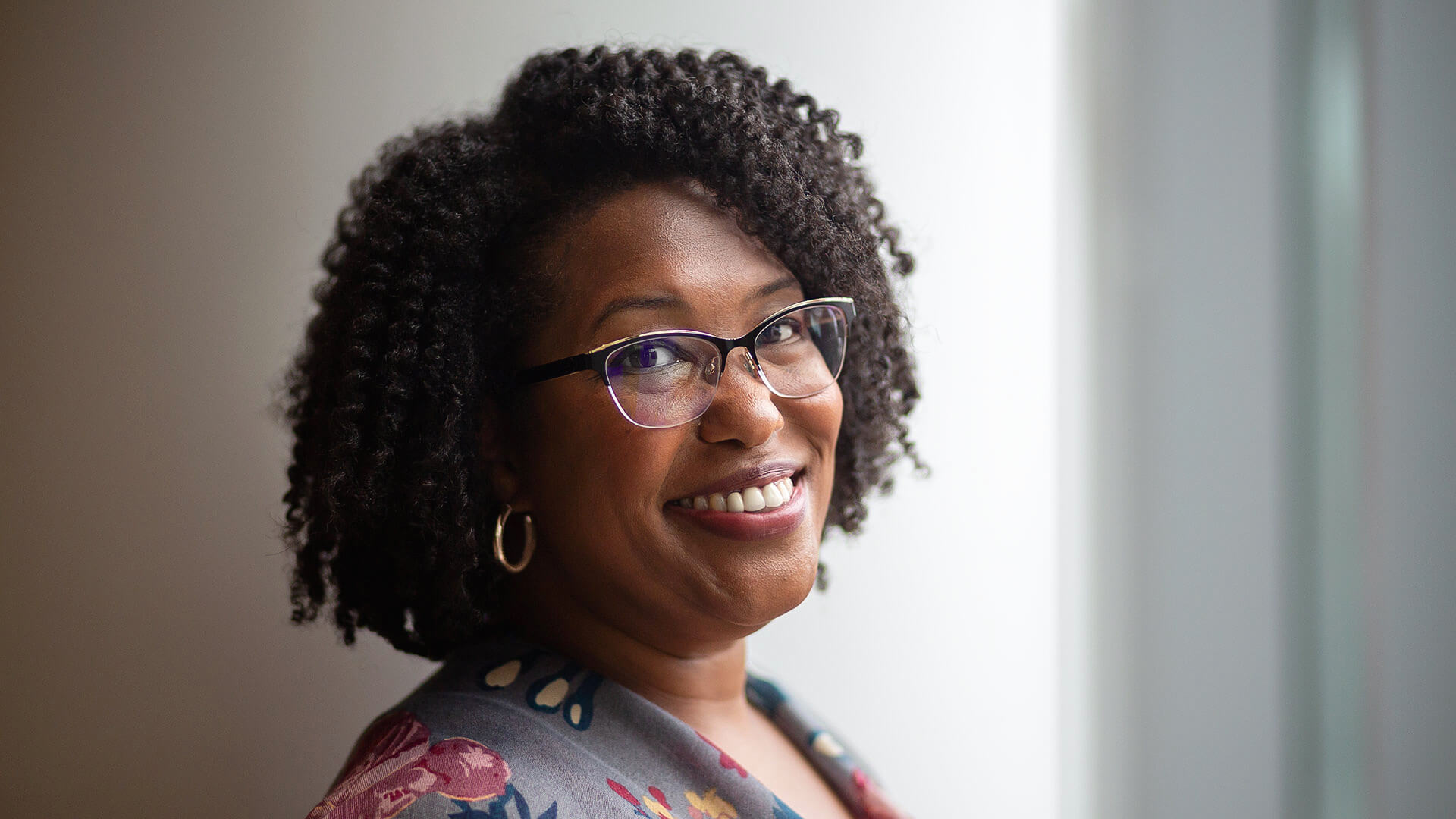 Chamika Ellis
Chamika Ellis
Community director, South Hill Community
“The more I put relaxers in my hair, the more I was like, ‘This is disgusting, I hate this, I hate the process.’ In December 2010, I called my best friend and I said, ‘I think I’m ready for you to cut my hair.’ So I went over and I brought a bottle of wine because I was scared. She cut my hair and I was like, ‘Oh, it looks amazing!’ I woke up the next morning like, ‘What the hell did I just do?’ I was the only Black person in my department. I was really scared about what that would look like and how people would perceive it. I tried to style it the best I could so it looked professional. I was literally shaking in my boots. I went to my meeting and they were like, ‘Your hair is so amazing!’
“My hair is an extension of my personality. Natural hair is dope. I love the versatility of my hair. I can wear twists, keep them in for a week, take them out and have another style for another week. I love everything about my hair.”
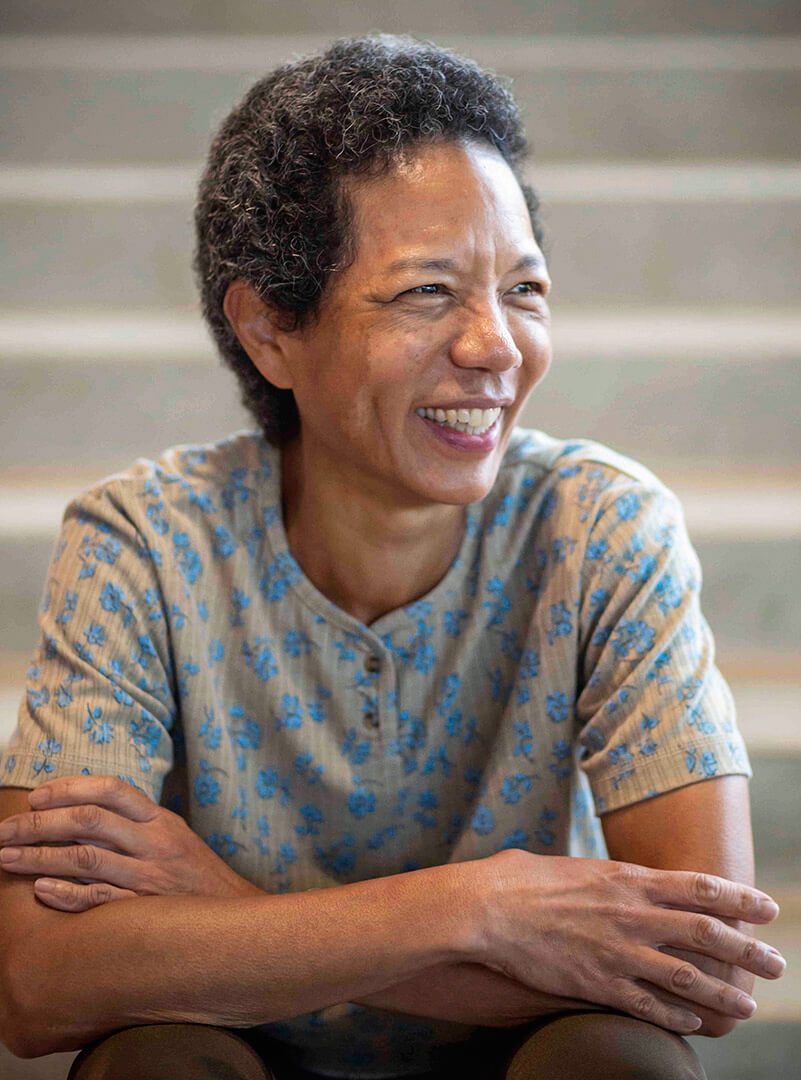 Georgina Dodge
Georgina Dodge
Vice president for diversity and inclusion
“I love my natural hair because it is perfect in nature, particularly when I exercise. It keeps me cool when it’s hot and warm when it’s cold, reminding me that the human body has some pretty amazing design elements. I appreciate that natural hair supports my identity as a runner as well as a Black woman who embraces health and heritage. There is so much diversity in Black hair and so many different reasons we choose our hairstyles. That gift of choice should be celebrated every day, as should the ability to upsweep, downbraid, pouf, flatten, twirl, lock, dread or shave. The versatility of Black hair makes it beautiful: a work of art in all its forms and shapes.”
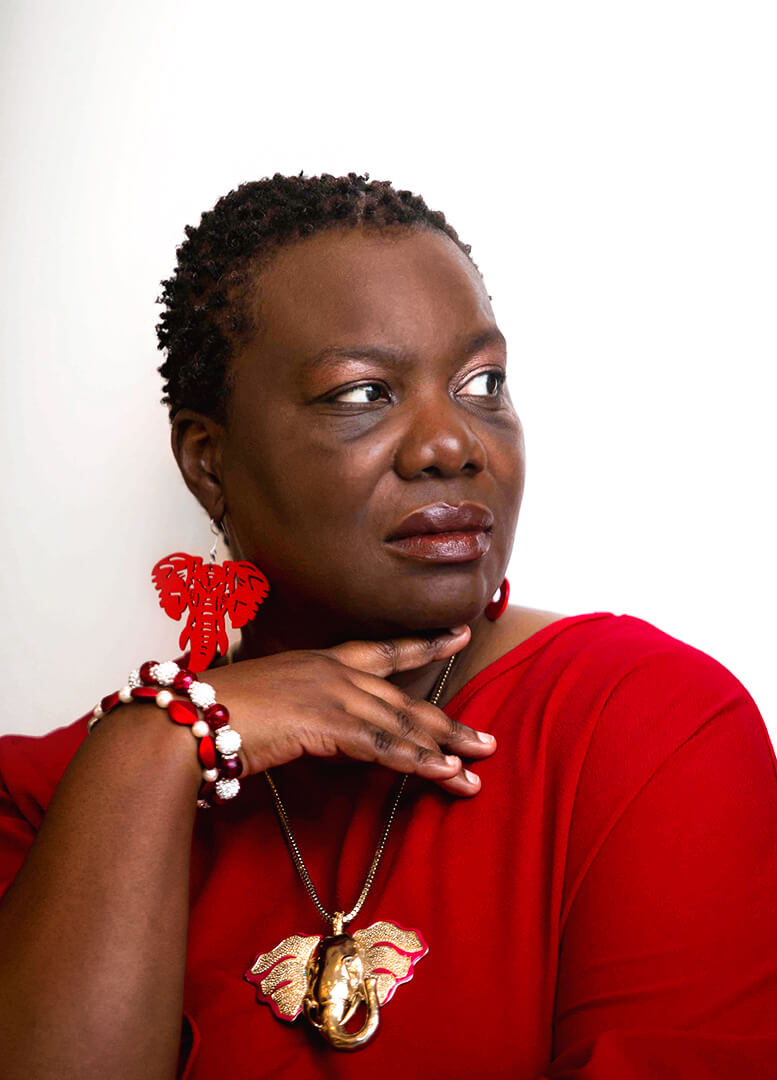 Dawn Roy
Dawn Roy
Research compliance analyst, Division of Research
“My parents, who are from the South, didn’t understand the importance of natural hair because they were constantly being told that they were lesser than; therefore, their beauty and looks were irrelevant. What I absorbed (from popular culture) was that natural hair was not beautiful. We didn’t have the hair that you saw on television every day with the Christie Brinkleys. As I grew older, I started to see more women wearing their hair natural, and I thought it looked beautiful.
For years, African American culture has been stigmatized. The CROWN Act shows that we come from a line of beauty, a line of royalty. It’s very important to show that our history matters to us. Whether it’s natural hair or wearing African clothing, it’s important to us. This is our culture, and it should be respected.”
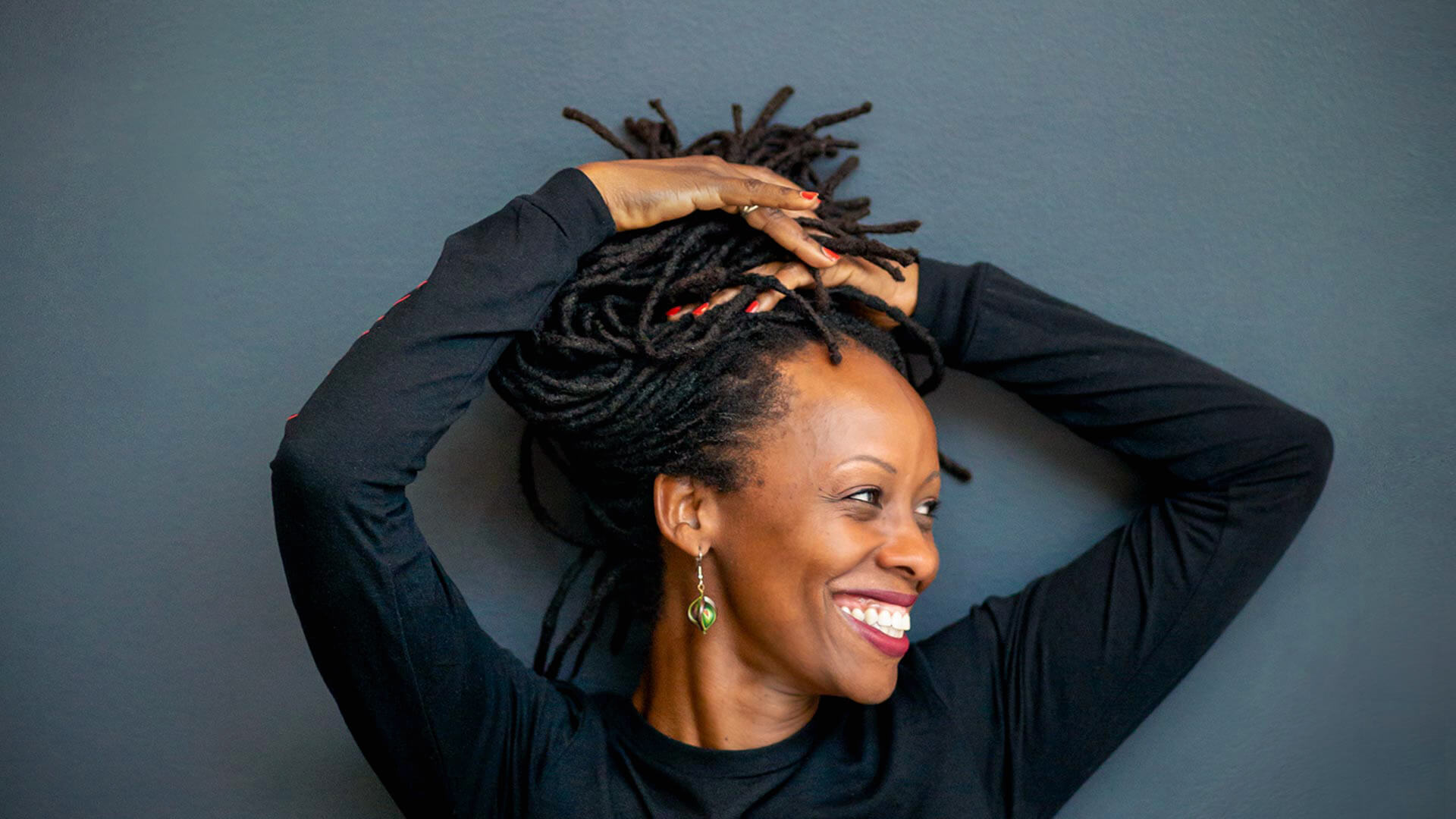 Jillian Kingwood
Jillian Kingwood
Program coordinator for billing and financial aid, Robert H. Smith School of Business
“I just love my hair. I love the naturalness. I like for people to see who we are in our natural state, and hopefully be very accepting of it.”
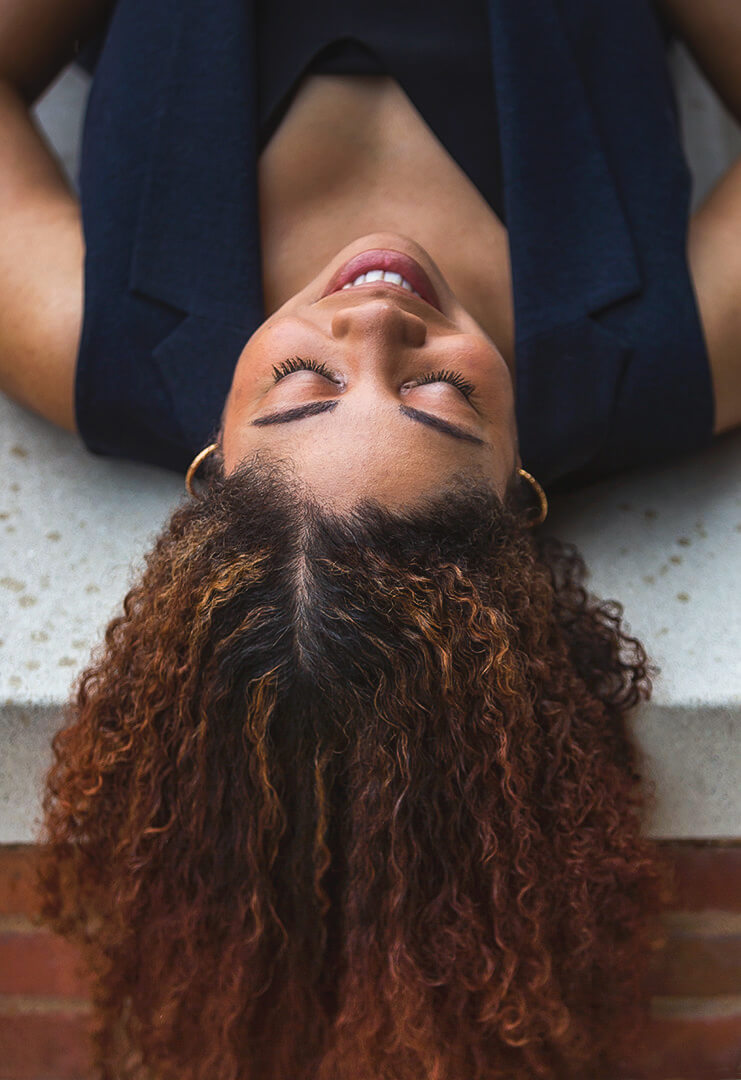 Cecily Greene
Cecily Greene
IACUC coordinator, Division of Research
“I got relaxers up until October 2011. That was when I logged onto YouTube and saw a YouTuber known as Naptural85. I was watching her vlog, and I kind of got addicted to it. I was really feeling her natural hair regimen and how she was doing things. I decided to start the process of going natural. I made that commitment on Jan. 1, 2012. It was my New Year’s resolution. It was a lot of fun because I was more mindful of the ingredients of products, and I was making my own products. There were mixtures of oils that really helped with the hair, shea butter, mango butter, cocoa butter. I would order stuff online and melt them and put oils in them and let them solidify and mix them all up and put them in containers.
“We have to destroy the stereotype that our natural hairstyles are tied to our work performance. That’s why I love that Jay-Z wears freeform locks. Are you going to discriminate against him? Go ahead—he’s a billionaire, and his hair did not play a part in that achievement. My advice is to wear your natural hair in as many professional settings as possible. It is not our job to make ignorant people feel comfortable. Loving yourself includes loving your hair in its natural texture.”
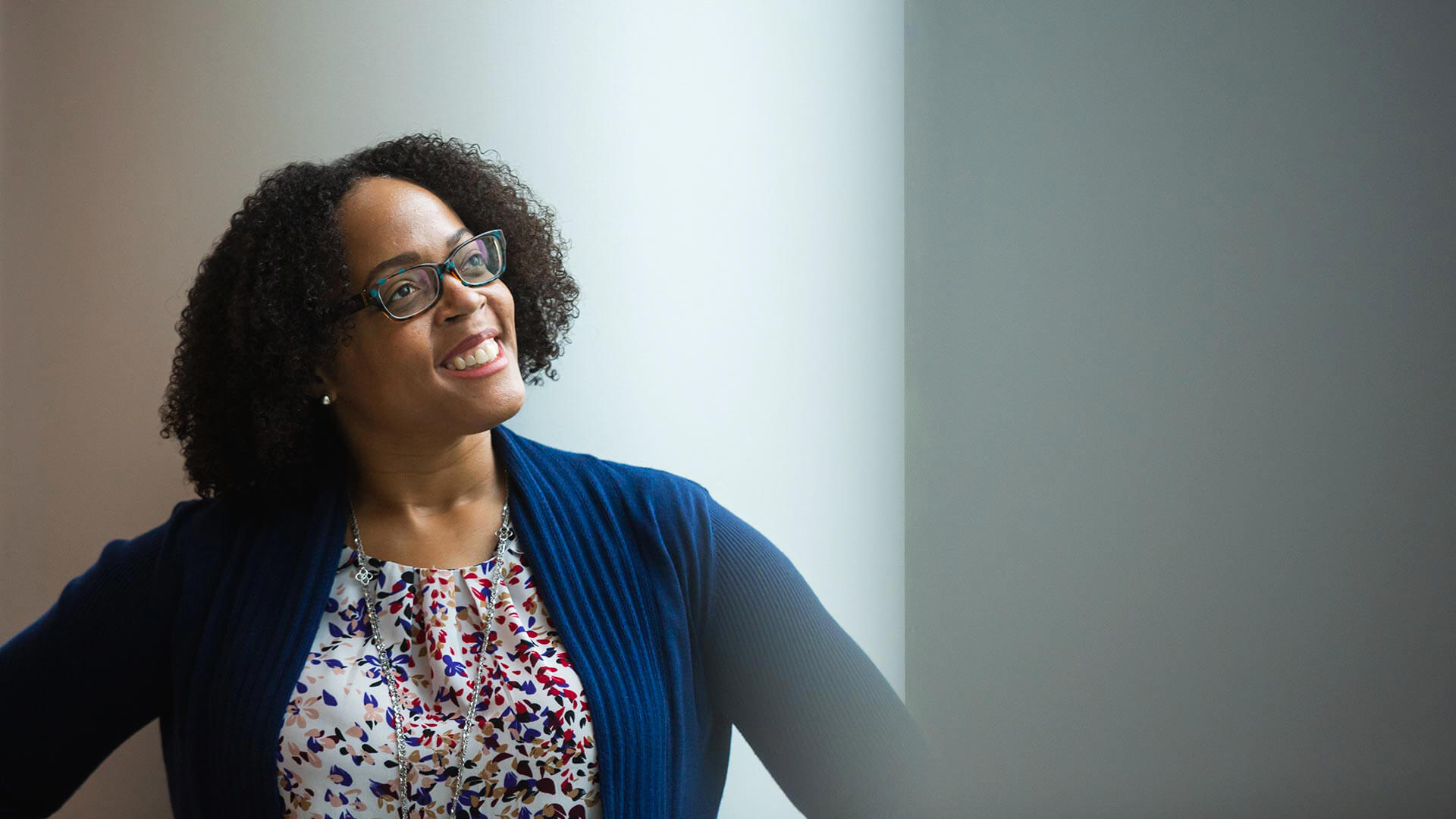 Stephanie Swann
Stephanie Swann
Contract manager, Office of Research Administration
“Sometimes you do wonder what are people going to assume about you because your hair’s not permed or it doesn’t look straight. It’s really reassuring that we have that at the university—women of different colors who present themselves (with natural hair). It’s not a limitation whatsoever.
I did have an experience with micro-aggression a long time ago in (a different) workplace. I came to work with my hair in a wash-n-go: you wash it, condition it, put a little product in it just to set it, and you have this freshly washed look. I came into work, and my white coworker, whose hair was also a little wavy and I’d never seen her wear her hair straight either, said, ‘Whoa, your hair is wild today.’ I was taken aback. I said, ‘My hair is curly just like yours.’ I didn’t know what else to say, and I didn’t understand the need to use the world ‘wild’ to describe my hair that day, since we were both wearing our hair in its natural state.
I have a deep appreciation for the hair I have today. It’s not the hair I had when I was younger. It’s been through some things. That’s life.”
Topics
Campus & Community